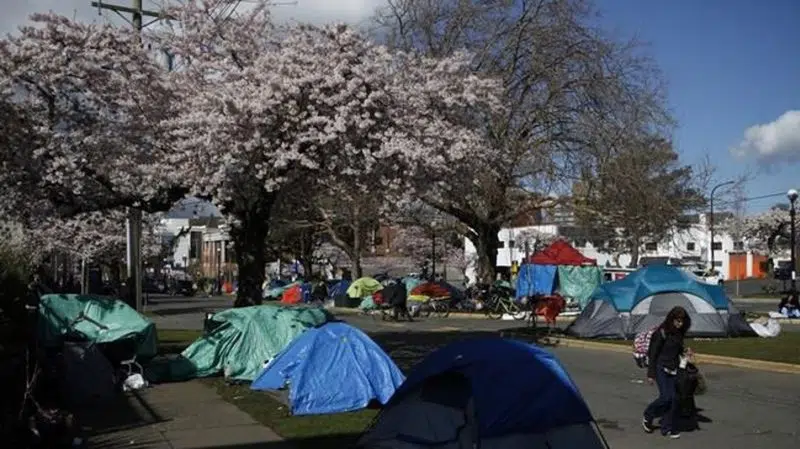
Victoria wants homeless to be housed in empty hotels during pandemic
VICTORIA — The City of Victoria is calling for the British Columbia government to take over its empty hotels and motels as a solution to housing the homeless during the COVID-19 pandemic.
Victoria council passed an emergency resolution calling on the provincial government to use its powers to house those without homes in empty hotels across the region.
“There are a number of hotels and motels fully closed that may welcome some source of revenue from the provincial government,” Mayor Lisa Helps said on Friday. “I don’t care how people get inside; if it’s hotels, motels, arenas, community centres, it doesn’t matter to me.”
Housing those people would provide them with a safe place to protect themselves from COVID-19, she added.


